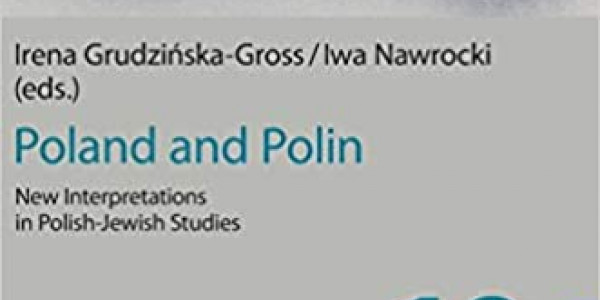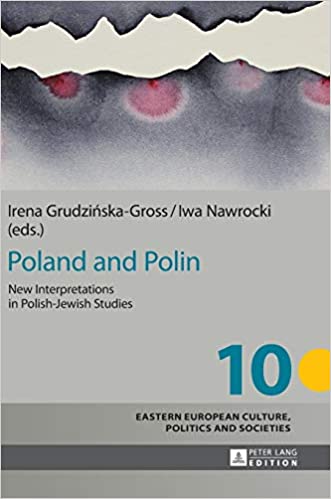Poland and Polin. New Interpretations in Polish-Jewish Studies
Collection of papers delivered at the Princeton Polish-Jewish studies workshop, April 2015
19/04/2015 | Na stronie od 19/04/2015

Source: Academia.edu
Iwa Nawrocki
Irena Grudzińska Gross
Table of Contents
- Editors’ Note ..................7
- Geneviève Zubrzycki
Conference Report ..........9
Part I: Politics of History
- Jan Grabowski
The Holocaust as a Polish Problem ..............17 - Jan T. Gross
Jews as a Polish Problem; and Why Not – as a Part of Polish History? ...29 - Irena Grudzińska-Gross
Polishness in Practice .........................37
Part II: Reading the Museum
- Joanna Tokarska-Bakir
Polin: “Ultimate Lost Object” ...........49 - Konrad Matyjaszek
Wall and Window: the Rubble of the Warsaw Ghetto as the Narrative Space of the POLIN Museum of the History of Polish Jews ...............59 - Piotr Forecki and Anna Zawadzka The Rule of the Golden Mean .............99
- Elżbieta Janicka
The Embassy of Poland in Poland: he Polin Myth in the Museum of the History of Polish Jews as Narrative Pattern and Model of Minority-Majority Relations .........121
Part III: Problematizing the Jewish Turn
- Geneviève Zubrzycki
Problematizing the “Jewish Turn” ...........175 - Karen Underhill Toward a Diasporic Poland/Polin: Zeitlin, Sutzkever,and the Ghost Dance with Jewish Poland ...........181
- Erica Lehrer
Public Pedagogy and Transnational, Transcultural Museums .........197
Appendix
- Appendix I: Polish-Jewish Studies Workshop Participants ......219
- Appendix II: Polish-Jewish Studies Workshop Agenda............221
- Index.........................................................223
Editors’ Note
his volume relects discussions during the Princeton University conference on Polish-Jewish Studies held on April 18–19, 2015. he contributions focus on the meaning of the POLIN Museum of the History of Polish Jews, on Polish politics of memory, and on the renewal in research and teaching of Polish-Jewish subjects. hey position Polish-Jewish Studies at the intersection of academia and public history, highlighting the ield’s ability to engage both intellectual and cultural production, history and contemporary politics. his vast potential for dialogue and cross-fertilization speaks to the dynamism and relevance of the ield. he opening report lists the conference participants and summarizes their interventions. Not all the papers delivered during the conference were presented for this publication, and none was submitted by the speakers professionally involved in the POLIN Museum of the History of Polish Jews. Most numerous are the papers that interpret the Museum and look at the cultural policies behind its creation, as well as those that address other cultural initiatives connected with Jewish memory and cultural revival funded by Polish state institutions. he conference was sponsored by the Princeton University Departments of History and Slavic Languages and Literatures, Program in Judaic Studies, and Council of the Humanities, by the Taube Foundation for Jewish Life and Culture, the University of Illinois at Chicago Fund for Polish-Jewish Studies, the Adam Mickiewicz Institute in Warsaw, the Polish Cultural Institute in New York, and the Institute of Slavic Studies of the Polish Academy of Sciences.
Irena Grudzińska-Gross and Iwa Nawrocki
